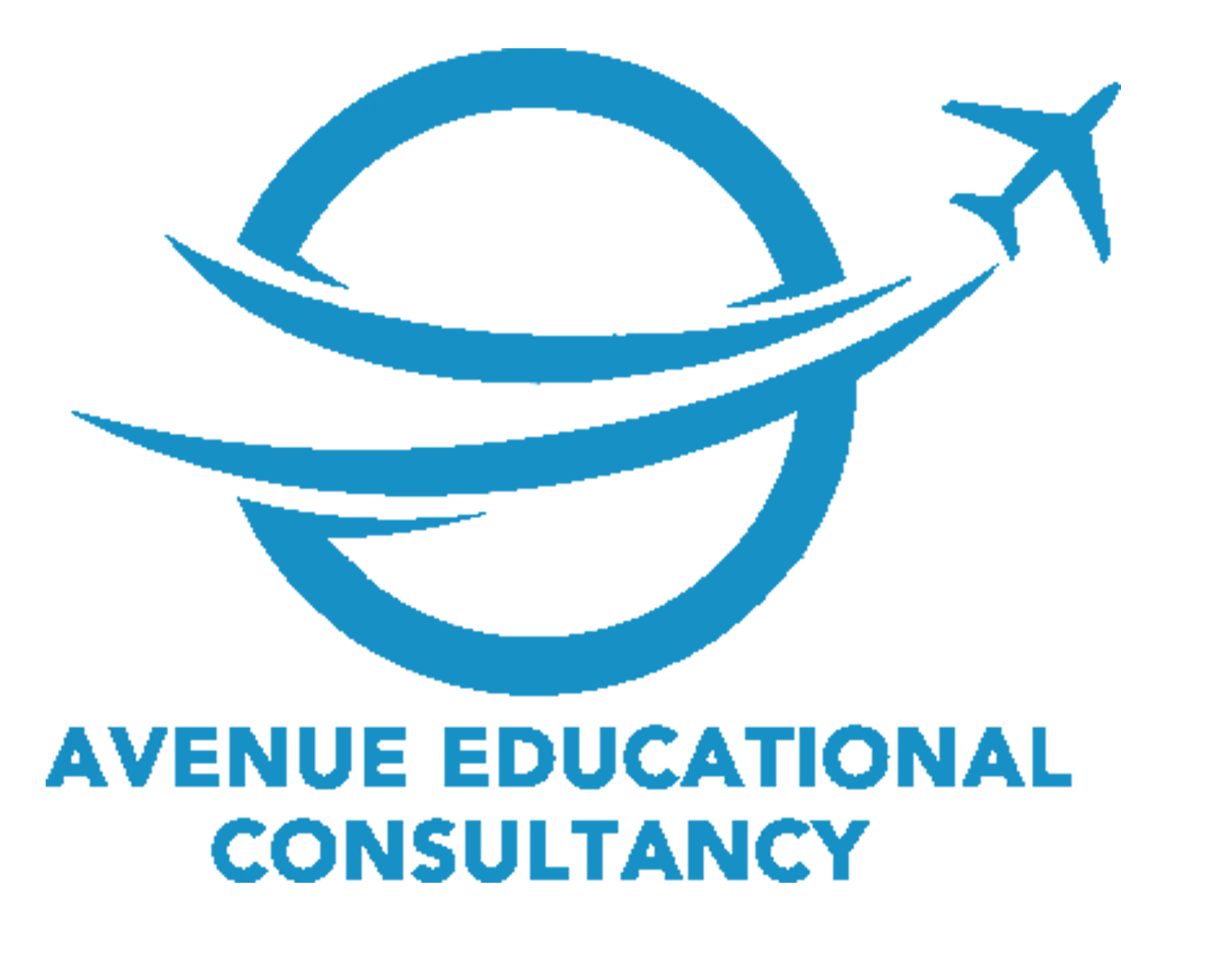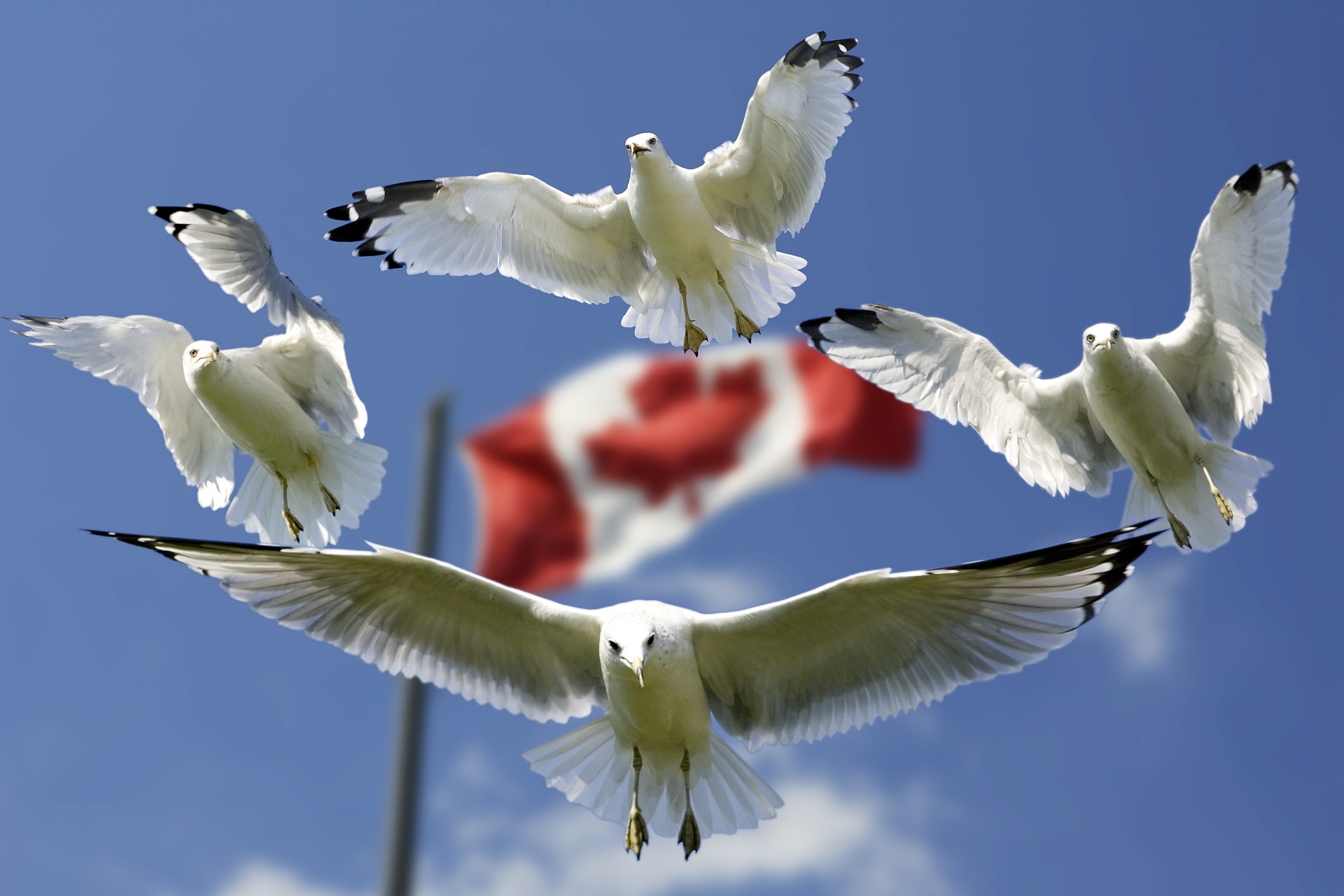Study in Canada
Quick Facts
Location: Canada is a country in the northern half of North America
Capital: Ottawa
Major Cities: It has ten provinces and three territories. Toronto, Montreal, Vancouver, Calgary, Edmonton, Quebec City, Winnipeg and Hamilton
Main Language: English and French
Climate : The majority of the country has a cold or severely cold winter climate, but southerly areas are warm in summer.
Economy
GDP: $1.672 trillion (2016 estimate)
Currency: Canadian dollar ($) (CAD)
Government: The Government of Canada or more formally Her Majesty’s Government, is the federal government of Canada, a country in North America, composed of 10 provinces, Ottawa (the nation’s capital), and 3 territories.
Area: 9,984,670 km2 (3,855,100 sq mi)
Distance from Ethiopia: 16 hours
Population: 35,151,728 (2016 estimate)
Time Zone: (UTC−3.5 to −8)
Why Study in Canada?
In any given year, more than 180,000 students decide to study in Canada. Canada is known for its quality education & competitive entry requirements. A Canadian Degree/Diploma is recognized across the globe. If you have decided to study in Canada from Ethiopia, you will be charged lower tuition fees than counterparts in competing countries. For the past nine consecutive years, a UN survey has found Canada to be the best place in the world to live in. Study in Canada for Ethiopian students is also seen as a pathway to PR which takes up to 15 to 18 months from within Canada. Students are eligible to work off campus without a work permit for upto 20 hrs per week & full time during vacation. Several programs may even have a paid co-op term, where one gets hands on experience while working in the industry. Further, on the completion of their program, students can work upto 3 years depending on the length of their study program.
Living in Canada
Traditions & Culture: Throughout Canada’s history, its culture has been influenced by European culture and traditions, especially British and French, and by its own indigenous cultures. Over time, elements of the cultures of Canada’s immigrant populations have become incorporated into mainstream Canadian culture. The culture of Canada is a term that embodies the artistic, culinary, literary, humour, musical, political and social elements that are representative of Canada and Canadians.
Food: The Most ‘Canadian’ Foods Include Bacon, Poutine And Maple Syrup. The national dish of Canada is a food called poutine, which is a high-calorie creation that consists of fries, cheddar cheese curds and gravy. The Canadian dish was originally seen in the province of Quebec, but can be found all around Canada and has spread to the United Kingdom and United States.
Safety: Canada is a friendly, safe country with a high standard of living. Low crime rates, great student health benefits, and universities focused on student security and health make studying in Canada a good choice for anyone who’s uneasy about personal safety while abroad. The Global Peace Index ranks Canada among its top 10 safest countries in the world to visit.
Welfare:
Health: Relative to other countries, medical insurance in Canada is inexpensive yet the services that Canadian hospitals provide are among some of the most advanced and accessible in the world.
Transport: Using the general-purpose public transport is the most common means of student transport, in Canada. Below are few details:
Air
Due to Canada’s large size, people often travel between major cities by airplane. All main cities have airports with regularly scheduled flights to and from many places.
Rail
Canada’s rail network runs across the country, from Halifax, Nova Scotia, in the east to Vancouver and Prince Rupert, British Columbia, in the west. Trains in Canada are safe and comfortable. It is often cheaper to buy train tickets in advance.
Bus
Catching a bus can be the cheapest way of travelling between cities. It is often the only way of getting to smaller towns if you are not driving a car. Remember that bus travel can be very long due to the great distances involved.
Ferry
In coastal areas of Canada such as British Columbia and the Atlantic region, ferry boats are a common way to travel. Many ferries transport both passengers and vehicles.
Car
Canada has a large network of highways, making long distance travel by car possible between most destinations.
Education Cost
Canada is the world’s most educated country, with over half of its residents being college graduates. As per Organization for Economic Co-operation and Development (OECD), Canada is amongst the Top 3 countries in the world, in terms of spending per capita for public post-secondary education.
Study in Canada for Ethiopian students, is economical when compared to the counterparts in competing countries and at the same time, excellent educational quality is maintained. However, as the fees are more affordable, admissions are more competitive. Over the last three years, Canada’s inflation rate has remained one of the lowest in the industrialized world.
Tuition Fees
| Program | Tuition Fees (Approx.)/Year in CAD | In Indian Rs. /Year |
| Diploma & Certificate Program | 13,000 – 16,000 | 341,000 – 419,000 |
| Bachelors Program | 16,000 – 43,000 | 420,000 – 1,130,040 |
| Masters Program | 18,000- 44,000 | 473,000 – 1,156,320 |
Conversion Rate C$1 = 26.28 etb
Living Expenses
| Types of Accommodation | Living costs & expenses(Approx.)/month in CAD | |
| Residency/Dormitory | 350 – 515 per month | |
| Off campus Rental housing | 350 – 700per month (shared apartment) | |
| 500 – 1200 per month(single apartment) | ||
| Homestay | 550 – 800 per month |
Types of Accommodation
Residence / Dormitory
Many institutions have accommodation conveniently located on or near their campuses. Many residences have a shared kitchen, toilets and other facilities. There is usually an option of having either a shared or private room. Dormitories are usually separated by gender. In some cases, the meal plan can be included in the cost of the room.
Off campus Rental Housing
Renting is another option open to students when they decide to study in Canada. Many students share accommodation to keep costs down and usually find places that meet their needs & preferences. Many institutes offer an off-campus housing service which can provide a list of affordable accommodation near the campus.
Homestay
Many Canadian families welcome international students. Homestays also offer a more stable & secure environment for younger people coming to study in Canada. Typically, a homestay consists of a Canadian family hosting a student in their home while the student attends classes in Canada. Meals are provided in homestay but are not compulsory. Homestays are arranged by schools & students are matched with families who share similar interests.
Health Insurance
As Canada education consultants, we bring it to your notice that in Canada it is compulsory for an international student to have medical insurance. The medical coverage provided to international students varies throughout Canada with respect to the province. The provinces of Alberta, British Columbia, Manitoba, Newfoundland and Labrador, and Saskatchewan cover international students under their provincial health care plans, but coverage generally depends on the length of your stay.
*For any specific information or accuracy with respect to personal expenses please contact Lysa counselors.
Arrival and accommodation
Planning & Housing:
- Student Residence – Dormitories & Townhouses
Some schools provide student residence on-campus or nearby the campus. Dormitories are usually larger buildings housing many students, while townhouses are detached, housing usually three to six students - Off-Campus Shared Apartment or Condominium
Off-campus shared apartments provide students with a single room, in a living space with one or more other roommates. Like townhomes they most often contain a single occupancy bedroom or living space and have a shared kitchen, bathroom, dining, and living room area. - Host Family/Homestay
Living with a host family can provide you with a sense of home and security as you start your new life in Canada. Host families normally provide a private, single-occupancy room, and serve one – three meals per day and internet access. - Furnished or Unfurnished Apartment Rentals
There are many secure ways to find a temporary furnished apartment rental before your arrival in Canada by using websites such as Airbnb, Craigslist, HouseTrip or Wimdu. These apartments are normally furnished, private rentals. Be sure to read the reviews of each rental and check the feedback from other guests who have previously stayed there.
Restricted items to bring to CANADA:
- live birds and hatching eggs
- eggs, yolks, egg whites
- poultry meat (other than fully cooked, canned, commercially sterile meat products)
- raw pet foods containing poultry products
- feathers
- poultry manure and litter
- laboratory material containing poultry products/by-products and etc.
Welcome week: Welcome Week is your opportunity to make friends, learn more about studying at the university and living in the country. You will be invited to attend a number of events throughout Welcome Week – some of which are optional and others compulsory.
Travel to your institution: If you are staying near the university, there is shuttle service available. Else, you may chose to travel by trains or buses.
Opening a bank account: In order to open a Canadian bank account, you will need two documents: one to prove your identity and one to prove your address. This applies both in branch and online. Proving your identity is simple. You just need your passport.
Application Procedure
Intakes:
The preparation to study in Canada for Ethiopian students should begin 1 year in advance. The major intake for Canada primarily is ‘Fall’, September. The other intake is in the month of January i.e ‘Winter’ , but it depends on the student’s program and the institution that he/she is applying to. Very few institutes might have the May intake as well.
English Language Requirements:
All students must be fluent in English if they are applying to Canadian Institutes. International students need to reach the required level of English language competence. All students should take up the IELTS or TOEFL (ibt) exams. An IELTS band of 6.0/6.5 for undergraduates & 6.5/7 for postgraduate courses or a TOEFL score of 80 and above for undergraduate and 90 and above for postgraduation in Canada is desirable.
Eligibility:
Universities in Canada have a requirement level for its programmes. The requirements are mentioned below: –
Advance Diploma/ Diploma / Certificate:
The student should have a Higher Second-Class score in HSC. They should have cleared the IELTS/TOEFL (ibt) exams successfully complying to the conditions laid down by the university.
Bachelor’s Degree:
The student must clear HSC in First Class. And should have cleared the IELTS/TOEFL (ibt) exams successfully complying to the conditions laid down by the university.
Postgraduate Certification / Diploma:
A Higher Second Class in Bachelor’s degree (3 or 4 years) is necessary for a student to apply for Postgraduate Certification/Diploma. Students should have cleared the IELTS/TOEFL (ibt) exams successfully complying to the conditions laid down by the university. A Master’s Degree student should have a First class in Bachelor’s degrees (4 Years only). If students wish to pursue their postgraduation in Canada, they should have cleared the IELTS/TOEFL (ibt) exams successfully complying to the conditions laid down by the university or First Class in Bachelor’s degree (3 years in Ethiopia) is required. Or could have completed a Postgraduate Certificate or Diploma from a Canadian university.
Documents:
The complete application form along with the visa application.
- A valid Passport.
- Updated Resume
- An Essay or a writing sample latest.
- Academic Documents – Secondary and Higher Secondary mark sheets, Bachelors mark sheet, Masters mark sheet (As per the student’s case).
- A complete research report and questionnaire form for post graduate and research students.
- Work experience letter (As per student’s case).
- A Letter of Acceptance from the respective university.
- The Certificate of Acceptance from the province of Quebec (If applied for Quebec).
- IELTS score sheet/ TOEFL or English proficiency test score result.
- GRE/GMAT score sheet (As per the student’s case).
- Visa processing fees – Bank Draft.
- Proof of Funds Passport Biodata pages.
- Portfolio, thesis on the research subject (As per students’ case).
- Transcripts and Mark sheets from College or University.
- Letters of Recommendation.
- Statement of Purpose.
Education System
Types of Certification
Certificate: Is a qualification awarded upon successful completion of a program that is usually a course that demands one year’s time.
Diploma: Is a qualification awarded on the basis of one or two years of successful study.
Advanced Diploma: Is a 3 years program, some of which may lead to a Bachelor’s Degree.
Bachelor’s Degree: Are awarded by Universities/ University Colleges/ Community Colleges after four years of full-time study and lead to graduate level studies.
Post Graduate Diplomas / Certificates: It leads to a Master’s Degree. These programs have work terms that provide full-time opportunities to gain practical experience along with theoretical studies, this is a major pull factor for students who decide to study in Canada from Ethiopia. The prerequisites to participate in these programs are Bachelor’s Degrees of 3- or 4-years duration.
Master’s Degree: Is an option for Bachelor’s Degree Graduates who have an interest in further learning and research, and for those who want to broaden their career possibilities by attaining a postgraduation in Canada. It is for 2 years and can be pursued after a 4 years Bachelors or a 3 years Bachelors & a 1year Post Graduate Diploma from Canada.
Doctorate or PhD: Is a degree ranking above the Master’s Degree and generally takes four to seven years to complete.
Institutions: The degrees & diplomas from Canadian Institutions are among the most widely recognized in the world. The education system in Canada encompasses both public funded & private institutions. Students have a diverse choice of 90 Universities & 175 Community Colleges offering a wide array of programs. While pursuing their studies, the students are allowed to work for the first 6 months on-campus and thereafter off-campus. Students can earn more from vocational & Technology courses than normal degrees.
Post-secondary education is offered by four types of educational institutions:
Technical/ Career Colleges: These are privately owned and operated with the main objective of preparing students for the job market after a short period of instruction. The emphasis at career colleges is on practical skills over a broad range of programs.
Community Colleges & Technical Institutes: They typically have more career oriented, practical/technical related curricula, with small classes, off-campus course offerings, a greater ratio of laboratory space to classroom space, and an interactive teaching style.
University Colleges: As a component of the Canadian University system, university colleges offer students a choice of either academic oriented university degree programs or the more practical-oriented college diplomas and certificates when they decide to study in Canada.
Universities: Canadian Universities are largely public funded and as a result, offer consistently high-quality education at lower tuition rates for international students than their counterparts in competing countries. They offer a broad range of courses and degrees from Undergraduate to Doctorate and also certificate and professional degrees.
Grade Point Average (GPA): The average grade achieved by a student during the course of an educational program, is calculated on various scales depending on the Institution. (e.g.: generally, the student may be evaluated on a 4-point scale or a 9-point scale).
Visa
STUDY PERMIT
- Student visa is called as ‘Study Permit’
- Study Permit is issued by CIC (Citizenship & Immigration Canada)
- For courses less than 6 months Study Permit is not required
- Study permit is for course duration + 90 days
Study in Canada for Ethiopian students, becomes challenging when they have to gain a Canadian study permit.
To qualify for a Study Permit Application under SDS the student should hold an unconditional offer letter from one of the universities / colleges that are included under this scheme. Students must also meet the requirements of the Canadian Immigration Act and Regulations. The study permit is a document issued, that allows foreign nationals to study at designated learning institutions (DLI) in Canada.
The Canadian High Commission provides all visa applicants an efficient, transparent, and standardized application process which simplifies application submission and fee payment in Ethiopia.
A Visa Interview is not mandatory for Study Permit applications, but if required the Immigration, Refugees and Citizenship Canada may ask you to attend an interview at the Visa Office Once the Visa Office has assessed your application, they will make a decision and affix a visa counterfoil in your passport or otherwise issue you with a letter explaining why a visa could not be granted for you to study in Canada.
Where to Apply
You may deposit your application at the Canada Visa Application Centre (CVAC), Ethiopia operated by VFS Global Services Pvt. Ltd. Once you deposit your application at the Visa Application Centre, the VAC staff will perform a complete check, based on IRCC requirements and will then submit your application on your behalf on the following business day. Applications may also be submitted to Canadian Immigration and Citizenship by using online application system of Immigration, Refugees and Citizenship Canada (IRCC)’s website at www.cic.gc.ca
Visa Process
Step 1 – To obtain an Unconditional acceptance letter from the University/ College.
Step 2 – Paying the tuition fee for 1st year as requested by the University / College.
Step 3 – Demonstrating the proof for purchase of Guaranteed Investment Certificate (GIC) from a participating Canadian financial institution to cover the living expenses for the first year in Canada.
Step 4 – Complete the medical examination before submitting the study permit application by visiting one of the panel physicians in Ethiopia.
Step 5 – Submission of the visa application forms along with the relevant documentation.
Step 6 – Collecting the passport from the nearest Canada Visa Application Centre after the application gets processed and receive a notification to get the passport collected.
Employment Prospects
Part Time:
Can you work? Yes
What kind of work can you do? There are various part-time jobs available in all the sectors across hospitality/catering to call centre to banking and finance and etc. With few exceptions, it is very unlikely that you will find a part-time job related to your course of study.
How many hours can you work? 20 hours per week during studies; 40 hours per week during vacations.
Do you need prior approval when you work? No.
About Tax? If you are an international student studying in Canada, you may have to file a Canadian income tax return. You must determine your residency status to know how you will be taxed in Canada by following the given link:
http://www.cra-arc.gc.ca/internationalstudents/
Full Time:
To work in Canada after you graduate, you must apply for a work permit under the Post-Graduation Work Permit Program (PGWPP).
The PGWPP allows students who have graduated from a participating Canadian post-secondary institution to gain valuable Canadian work experience. Skilled Canadian work experience gained through the PGWPP helps graduates qualify for permanent residence in Canada through Express Entry.
A work permit under the PGWPP may be issued for the length of the study program, up to a maximum of three years. A post-graduation work permit cannot be valid for longer than the student’s study program, and the study program must be a minimum of eight months in length. For example, if you graduate from a four-year degree program, you could be eligible for a three-year work permit if you meet the criteria. If you graduate from an eight-month certificate program, you would be eligible for a work permit that is valid for no more than eight months.
How to find a job?
- Choice of Province– In case you start looking for a province that is not well populated or where the development is yet to happen in a big way, you can get job faster. Some examples of such places are suburbs areas in Calgary or suburbs of Ontario
- Hiring Services of Placement Consultant– Some Professionals are doing good work. Starting from helping you make a good resume that projects you in a good light before employer, to arranging interviews with various employers, these agencies can expedite your job hunt
- Making a Killer Resume– Making a great resume helps. Make a good resume that helps you showcase your skills better
- Get registered on Various Job Portals– There are some very good portals as Monster, Canada Jobs etc which have latest listing of good job offers. Get listed over there, stay active and respond to various opening
- Networking– Nothing works better than networking. Share your plans with all your friends and other circles there that you are reaching there. Most Jobs get filled up by networking only
Some Job searching sites are given below.
– http://www.workopolis.com/shared
– https://www.jobbook.com/en-us
– https://www.job-applications.ca/
– http://www.jobsincanada.com/
– http://www.canada.workcircle.com
Average Salary?
Undergraduate: C$ 30,000 – C$ 40, 000 per annum
Postgraduate: C$ 50,000 – C$ 70, 000 per annum
Useful Links






